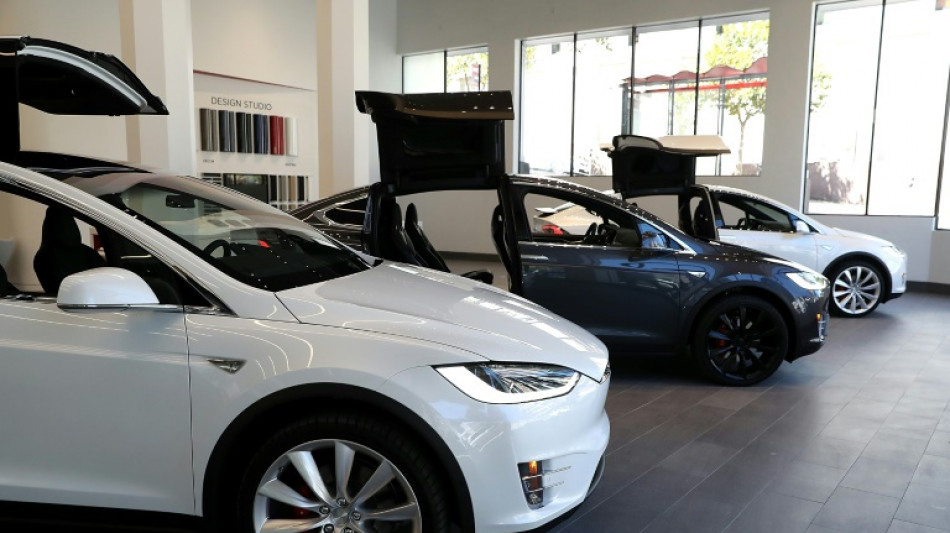
EU faces subsidy race with US in trade spat

EU leaders met in Brussels on Thursday at a summit focusing on a trade dispute with key ally the United States that threatens to trigger a subsidy race between the economic superpowers.
French President Emmanuel Macron said a European response was needed "to maintain fair competition", one which "allows us to match what the Americans are doing".
The European bloc is unsettled by parts of a multi-billion-dollar US Inflation Reduction Act (IRA) that lavishes subsidies and tax cuts for US purchasers of electric vehicles -- if they "Buy American".
The European Commission sees that as discriminatory against European car manufacturers, a breach of World Trade Organization rules, and a threat to investment in Europe.
It is urging the EU leaders to sign off on a plan that would loosen state aid rules and boost public investment in cleaner energy.
Commission chief Ursula von der Leyen said in a pre-summit letter to the leaders that the measures were needed because of the IRA provisions that "risk un-levelling the playing field and discriminating against European companies".
While Thursday's summit was also to examine Russia's continuing war in Ukraine, and the fall-out in Europe, von der Leyen's Vice President Margrethe Vestager warned: "We already have war in Europe. The last thing we need is a trade war on top."
Macron and the commission have tried to persuade US President Joe Biden to change the contentious parts of the IRA, to no avail apart from receiving promises of some "tweaks".
Biden and his administration believe the EU is free to come up with its own subsidy arrangement for electric vehicles -- a sector in which China has outsized advantages when it comes to batteries and rare-earth supplies.
There were some concerns among EU countries that the bloc's main car-exporting nation, Germany, might go it alone with its own subsidies, as it already did with measures on energy.
German Chancellor Olaf Scholz said he and his counterparts "will talk about the competitiveness and future viability of our economy" in light of the US IRA.
- 'Delicate' ties -
European Council President Charles Michel, chairing the summit, said economic ties between the United States and the EU were in a "delicate" phase.
He acknowledged that Washington was a key ally for Brussels in many other areas, not least in Europe's efforts to "rebalance our economic relationship with China".
But he said there was now a need to "adapt" EU state aid rules and possibly come up with "new tools" to protect Europe's single market and trade.
The EU summit was also to study an internal dispute, between Austria and Bulgaria, over migrants.
Austria is blocking Bulgaria's bid to join the border check-free Schengen zone encompassing most EU members and a couple of neighbouring countries.
Vienna fears Bulgaria's inclusion would further spur irregular migration onto Austrian territory.
"We have more than 100,000 asylum applications in Austria, more than 75,000 of those who make these applications are not registered," Austrian Chancellor Karl Nehammer said.
That "security problem" had to be solved before Bulgaria -- and the linked bid by Romania -- could be allowed into the Schengen club, he said.
"They are countries that should protect the external border," Nehammer said.
Bulgaria's President Rumen Radev said as he went into the summit that his country was "highly committed to secure our border" but needed EU help.
"We request Bulgaria to be treated as a solid country," he said. "Please don't leave us alone."
V.Bennett--TNT